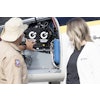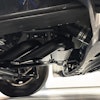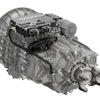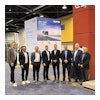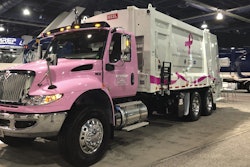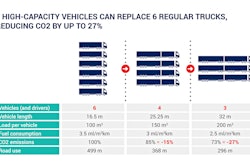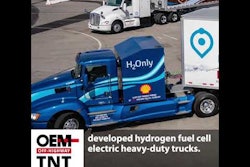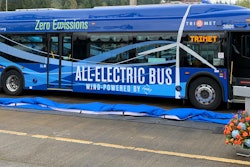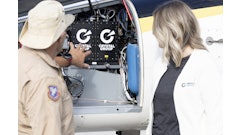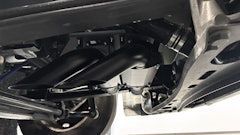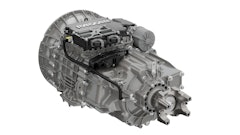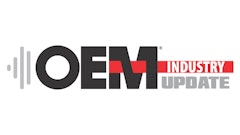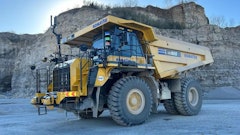NFI Group Inc., the leading transit bus and motor coach manufacturer and parts distributor in North America, has announced its financial results for 2019 Q1.
“The first quarter is typically NFI’s slowest period and our financial results reflected this seasonality,” says Paul Soubry, President and Chief Executive Officer of NFI. “While there were some unusual headwinds during the first quarter related to adverse weather and chassis supply disruption for certain ARBOC vehicles, there were also many positives including an increase in active bids, significant new vehicle awards, improvement in our book-to-bill ratio and the successful launch of New Flyer Infrastructure Solutions. I am encouraged by our performance in the second quarter and have a positive outlook for the remainder 2019 as we expect to realize the benefits of investments made in our business which will help us enhance our competitiveness, maintain leadership positions, improve margins, generate strong free cash flow and return capital to shareholders.”
2019 Q1 Impact of the Transition to IFRS 16
Effective December 31, 2018, the company adopted IFRS 16, the accounting standard which specifies how to recognize, present and disclose leases. This standard provides a single lessee accounting model, requiring lessees to recognize assets and liabilities for all major leases. On transition, the company has elected to use the following practical expedients and policies:
- To utilize the modified retrospective approach to adopting the standard, accordingly comparative information for 2018 has not been restated
- To utilize the definition of a lease under International Accounting Standard 17 to identify contracts that are, or contain, leases
- To exclude the recognition of the right-of-use asset and lease liability for leases with a term of 12 months or less
- To exclude the recognition of the right-of-use asset and lease liability for leases of low-value assets
- To value the right-of-use asset as equal to the lease liability, adjusting for related amounts prepaid or accrued
The impact of the adoption of IFRS 16 primarily impacts NFI’s Earnings from Operations, Adjusted EBITDA, Net earnings and Adjusted Net Earnings, and the associated per common share (Share) amounts, Return on Invested Capital (ROIC) and several balance sheet accounts as reported in the Financial Statements and MD&A.
2019 Q1 Financial Results
Manufacturing revenue decreased by $2.2 million, or 0.5%, in comparison to 2018 Q1. Heavy-duty transit revenues were up by $25.1 million quarter-over-quarter from sales mix and increased volumes but were offset by a 24.1% decrease in motor coach volumes and a $3.8 million decrease in medium and low-floor cutaway revenues, which was driven by a chassis supply disruption for certain ARBOC vehicles. The lower coach volumes were driven by unfavorable weather, larger seasonality impact than 2018 Q1 and new model launches impacting production line efficiency. While heavy-duty transit volumes were higher than the comparative period, they were negatively impacted by unfavorable weather. Management expects the lost heavy-duty and low-floor cutaway volumes will be recovered in future periods.
Aftermarket revenue decreased by $9.5 million, or 9.5%, compared to 2018 Q1, primarily due to the impact from lost parts sales as a result of Daimler’s termination of MCI’s Distribution Rights Agreement (DRA) to sell and support German made Setra motor coaches in the U.S. and Canada, market softness in the private motor coach aftermarket segment and fewer fleet renewal programs. A positive trend in the Aftermarket segment was 6% revenue growth in 2019 Q1 from 2018 Q4.
Manufacturing Adjusted EBITDA decreased by $11.5 million, or 21.3%, primarily due to lower coach and medium-duty and low-floor cutaway delivery volumes and the impact of adverse weather on the coach and heavy-duty transit businesses. Unfavorable weather conditions resulted in lost production days, overhead inefficiency and higher overtime costs, in both the New Flyer and MCI businesses. Additionally, increased production of new products and related learning curves plus normal changes in margin due to sales mix contributed to the overall reduction in Adjusted EBITDA. Continued startup losses incurred in the Shepherdsville parts fabrication facility (operated by NFI subsidiary, KMG Fabrication Inc. [KMG]) of $2.0 million also negatively impacted 2019 Q1 results. The KMG startup loss in 2019 Q1 was an improvement from the $3.4 million loss in 2018 Q4.
Aftermarket Adjusted EBITDA decreased by $2.0 million compared to 2018 Q1. The decrease is primarily due to lower sales volumes driven by lost parts sales from the Setra DRA, and softness in private motor coach and fleet renewal programs.
Net earnings during 2019 Q1 decreased by $14.3 million, or 47.0%, compared to 2018 Q1, and Net Earnings per Share decreased by $0.22. In addition to the factors that led to the decrease in Adjusted EBITDA, interest expense increased by $14.3 million, primarily from losses on the company’s interest rate derivatives and higher average draw under the Company’s credit facility due to changes in working capital, Share repurchases under the company’s NCIB and dividends paid. Partially offsetting these items were lower income tax expenses.
Adjusted Net Earnings during 2019 Q1 decreased by $20.3 million compared to 2018 Q1, primarily due to the previously mentioned impacts on Net Earnings.
Liquidity
Free cash flow in 2019 Q1 decreased by $8.3 million, or 20.4%, when compared to 2018 Q1. The decrease was primarily due to lower earnings from operations. Dividends declared increased by 26.3% in 2019 Q1 as a result of increases in the annual dividend rate, partially offset by the impact of repurchases under the company’s NCIB program. The factors noted above temporarily increased the payout ratio from 39.0% to 60.0%.
NFI’s liquidity position as at March 31, 2019 was $301.5 million a decrease from the position of $355.4 million at December 31, 2018. The decrease in liquidity primarily relates to the amount of capital returned to shareholders through dividends and repurchase of shares under the NCIB as well as changes in noncash working capital, which are primarily seasonal in nature and expected to be temporary. Management believes these funds, together with share and debt issuances, other borrowings capacity and the cash generated from NFI’s operating activities, will provide the Company with sufficient liquidity and capital resources to meet its current financial obligations as they come due, as well as provide funds for its financing requirements, capital expenditures, the increased dividend payments and other operational needs for the foreseeable future.
Outlook
Management’s outlook for the heavy-duty transit bus market remains healthy, while private motor coach is expected to continue to experience some headwinds. Overall, demand for low-floor cutaway and medium-duty buses is encouraging. Management believes the significant investments the Company has made in new product models, zero-emission buses (ZEBs), facility upgrades and LEAN manufacturing processes, parts fabrication, and IT harmonization will permit NFI to enhance competitiveness and maintain leading positions in core markets.
As noted in NFI’s April 15 deliveries, orders and backlog release ARBOC experienced chassis supply disruption during the first quarter for certain ARBOC low-floor cutaway vehicles which impacted NFI’s ability to deliver products. While ARBOC is now consistently receiving chassis in order to reflect the 2019 Q1 impact of lower cutaway deliveries, management has updated its Fiscal 2019 delivery guidance. No changes have been made to heavy-duty transit or motor coach delivery guidance. Management’s Fiscal 2019 guidance is now revised to 4,410 EUs, a decrease of 45 low-floor cutaway EUs from previously reported expected deliveries.
Management was encouraged by first quarter growth in NFI’s Bid Universe, which is a company generated metric that reflects active public-sector competitions in Canada and the United States and a forecast of public customer projections for expected EUs to be placed out for competition over the next 5 years. At the end of 2019 Q1, the total Bid Universe was 24,532 EUs, an increase of 4.7% from 2018 Q4, while the active Bid Universe, which includes all requests for proposals received and in process of review plus bids submitted and awaiting customer action, increased by 24.1%. The Bid Universe EUs fluctuate significantly from quarter-to-quarter based on public tender activity procurement and award processes.
ZEBs continue to be an area of growing focus for New Flyer customers. ZEBs currently represent approximately 5% of New Flyer’s total backlog, with significant orders from major cities including: Toronto, Boston, Minneapolis, San Diego, New York, Seattle, Portland, Oakland, and Vancouver. In August of 2018, New Flyer received Canada’s largest ever battery-electric bus order from two Quebec operators. To further strengthen NFI’s ZEB offering, in 2019 Q1 the company launched New Flyer Infrastructure Solutions, a service aimed at providing safe, reliable, smart and sustainable charging and mobility solutions to public transit customers.
NFI Parts continues to focus on numerous strategic initiatives to counter competitive intensity and deliver profit growth. These initiatives include additional focus on vendor managed inventory (VMI) programs, an enhanced product offering, and capitalizing on the implementation of a common IT platform across the aftermarket business.
With the addition of MCI and ARBOC, the Company’s annual delivery schedule now has an element of seasonality due to the nature of each market segment and the annual production and vacation schedule of each manufacturing facility. Overall, management anticipates deliveries will tend to be higher in the second and the fourth quarters of the year as compared to the first and third quarters. This seasonality will be reflected in the company’s financial results for those respective periods. Within NFI Parts management expects there to be typical quarter-to-quarter volatility.
While 2019 Q1 financial results were negatively impacted by adverse weather, chassis supply disruption and lower seasonal volumes in motor coach, management does not expect the same factors to repeat in the second quarter. Management anticipates that a significant portion of the missed heavy-duty transit deliveries from 2019 Q1 should be made up during the remainder of the year.
Management believes NFI’s strong Free Cash Flow generation and low leverage position it well to continue to purchase Shares under its NCIB, while permitting it to maintain its current dividend rate. The company continues to consider strategic initiatives to grow and diversify the business, including through investments in its current operations and evaluation of strategic acquisition opportunities.
